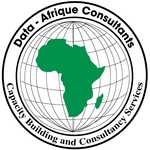|
|
Training Course On Nutrition Sensitive Programming And Nutrition Resilience Programming
USD 3,950 |
Venue: Nairobi
Secure livelihoods are characterized by households that have different activities within the community that provide income, shelter, and other factors to ensure their well-being. This training event is therefore intended to enable households, communities, and countries build resilience so as to strengthen their ability to manage change by maintaining or transforming their living standards in the face of shocks or stresses without compromising their long-term prospects. The course introduces the fundamentals of nutrition-sensitive programming and provides guidelines for practitioners to use when designing programs that promote access to nutrient-rich foods and dietary diversity in a society.
COURSE OBJECTIVES
At the end of the course, the participants will be able to:
- Articulate key information on the social and economic impact of malnutrition
- Identify strategies for interrupting the cycle of malnutrition
- Explain the relationship between agricultural value chains and food systems
- Explain the enabling environment in which all pathways operate.
- Explain a four-step approach for designing effective nutrition-sensitive activities
- Gain skills on cross-cutting roles in building nutrition resilience
DURATION
2 Weeks
WHO SHOULD ATTEND
This training course is suitable to a wide range of professionals but will greatly benefit stakeholders working in livelihoods, food security, economic growth, nutrition, and maternal and child health. It is also beneficial to experts in agriculture; extension officers, agricultural officials and decision makers working with local people, in governments, donor organization, and non-profit oriented organizations for agriculture development programmes.
COURSE CONTENT
Module 1: Introduction
- An Introduction to Nutrition-Sensitive Programming and nutrition resilience programming
Module 2: Basic Nutrition Concept
- Essential Nutrition Concepts
- Indicators of Nutritional Status
- Micronutrient Malnutrition
- Interdependence Between Health and Nutritional Status
Module 3: Strengthening Nutrition Linkages: Why It Matters
- Key information on the social and economic impact of malnutrition
- Multi-sectoral approach in addressing malnutrition
- Concept of nutrition-sensitive introduction
- Specific ways to support improved nutrition
Module 4: Essential Nutrition Concepts for Nutrition-Sensitive Activities
- Five forms of malnutrition
- Essential needs of infants, children and mothers, especially during the period from conception to the child’s second birthday (the “first 1,000 days”)
- Strategies for interrupting the cycle of malnutrition
Module 5: Connecting Agriculture to Nutrition
- Conceptual Pathways that Connect Agriculture and Nutrition
- The Pathways Model
- The Income Pathway
- Women's Empowerment Pathways
- Expanding the Pathways Model
- Value Chains for Nutrition
Module 6: Designing Effective Nutrition-Sensitive Activities
- The four-step approach for designing effective nutrition-sensitive activities
- Nutrition-sensitive outcomes appropriate to the participants’ market systems development activity
- Potential strategies for addressing malnutrition
- Relevant practices, interventions, and indicators to include in the activity design
- The next steps for implementation and monitoring.
Module 7: Introduction to nutrition resilience
- Basic concepts and definitions
- Key factors impacting on nutrition resilience in developing countries
- Measuring nutrition resilience
- Nutrition resilience indicators
Module 8: Agricultural Livelihoods
- Constraints to sustainable agricultural development
- Threats to food and nutrition security
- Disaster Risk Reduction for food and nutrition security
- Building nutrition resilience in agriculture
- Effects of food security threats and constraints to agrarian change and rural development
Module 9: Cross-cutting roles in building nutrition resilience
- Capacity development role
- Gender equity role
- Role of strategic partnerships in strengthening nutrition
- Role of technology in enhancing nutrition support options
- Role of government and other development agencies
- Role of community participatory programs
Module 10: Review
- Final Case Assignment
GENERAL NOTES
- This course is delivered by our seasoned trainers who have vast experience as expert professionals in the respective fields of practice. The course is taught through a mix of practical activities, theory, group works and case studies.
- Training manuals and additional reference materials are provided to the participants.
- Upon successful completion of this course, participants will be issued with a certificate.
| Nairobi | Dec 09 - 20 Dec, 2024 |
Registration: 08:00:am - 04:00:am
| USD 3,950.00 | (Kigali) |
| USD 5,500.00 | (Dubai) |
| USD 3,000.00 | (Nairobi) |
| USD 3,000.00 | (Mombasa) |
DUNCAN KARIUKI +254723360025
Tags: |
Training Course Nutrition Sensitive Programming Nutrition Resilience Programming livelihoods food security economic growth nutrition maternal child health |



